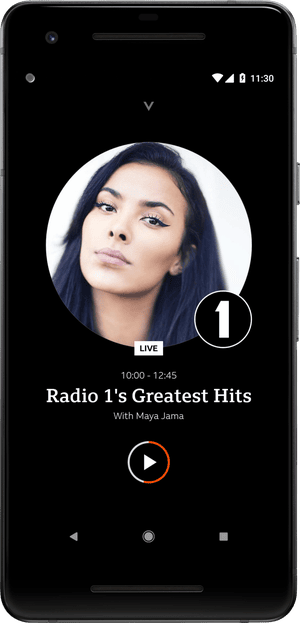Read this Guardian feature on the launch of BBC Sounds and answer the following questions:
1) Why does the article suggest that ‘on the face of it, BBC Radio is in rude health’?
It's because of large following and audinece for BBC Radio stations. They are the most popular radio station.
2) What percentage of under-35s use the BBC iPlayer catch-up radio app?
3%
3) What is BBC Sounds?
BBC Sounds is a new app and website that formally launches on Tuesday with a glitzy event at Tate Modern. It will bring radio livestreams, catchup services, music mixes and podcasts together under one roof.
4) How do audiences listen to radio content in the digital age?
People listen to the radio via voice assistants such as Amazon’s Alexa or just podcasts on Spotify.
5) What does Jason Phipps suggest is important for radio and podcast content aimed at younger audiences?
He says there is a need to reconsider the entire tone of how the BBC tells stories, shifting away from rigid formality if it wants to attract the precious under-35 audience: “It has to be a warmer, more story-led journey. You need to report the very personal experience of it.

“The very best stories are fundamentally anchored around the personal experience. You’re trying to find the human in the machine. Journalists have a process but younger audiences can find that very cold and want to access the actual response of human beings. They really want to understand the heart of the story.”
“We need more brash, funny, intelligent podcasts,”
6) Why does the BBC need to stay relevant?So that it maintains its audience and following that it has accumulated over the years and also secure their chances of success in the future for the next generation.
Now read this review of the BBC Sounds app.
7) What content does the BBC Sounds app offer?
“responding to your tastes, your moods”, “playing with form and content” and “public service running through its veins”.
8) How does it link to BBC Radio?
The app allows the user to click through and listen to any of the BBC radio stations that are live, podcasts, playlists and radio shows.
9) What are the criticisms of the BBC Sounds app?
the programme information a little tricky to access, and the search – as ever with the BBC – isn’t sensitive enough. Also there isn’t enough content. “Spooky Sounds” only offered me 11 shows; “Be Curious” just 10.
10) Two new podcasts were launched alongside the BBC Sounds app. What are they and why might they appeal to younger audiences?
End of Days and Beyond Today. The podcasts discuss socio-political topics that younger audiences may be interested in.
ShoutOut Network
Read this Huffington Post feature on the Shout Out Network and answer the following questions:
1) What is the ShoutOut Network?
A London-based network of podcasts which cover a diverse range of content.
2) What podcasts are offered by the ShoutOut Network?
Two Fools Talking (comedy, Mostly Lit (pop-culture literature), Artistic State of Mind (theatre + music)
3) What audience do they reach?
Over 20,000 listeners per month and 92% BAME communities
4) What are the 2015 statistics on podcast listening in the UK?
- 3.7 million adults listen to podcasts - this is equal to 6.5% of the adult population
- 57% listen to podcasts on their phones
- 47% listen while commuting
- 34% listen while relaxing
5) The article suggests podcasts are ‘picking up more steam’. Do you think podcasts the future of radio?
I feel like they surly will be more popular then radio and when radio station will be gone completely, podcast could be a new representation of radio. Audience like to be in control, and now they actually have a choice to choose shows that they want to watch and podcasts that they want to listen to.



Brak komentarzy:
Prześlij komentarz